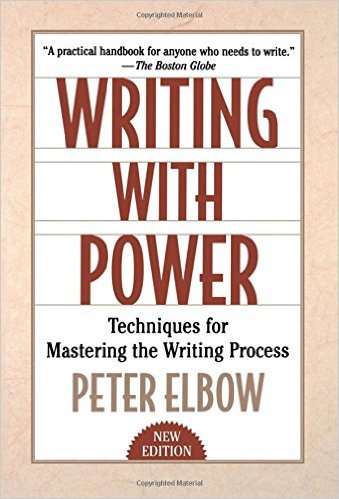Writing with Power and Writing Without Teachers: A Comprehensive Guide to Research Paper Writing and Strategy
Introduction
Peter Elbow's seminal works, "Writing with Power" and "Writing Without Teachers," offer invaluable insights into the writing process, particularly for academic research papers. This white paper aims to synthesize these principles and provide a comprehensive guide to research paper writing, emphasizing strategies that empower writers to work independently and effectively.
Understanding the Research Paper
A research paper is a formal academic document that presents original research findings or a critical analysis of existing research. It typically involves:
- Topic Selection: Choosing a relevant and focused research question.
- Literature Review: Conducting thorough research to identify existing knowledge and scholarly debates.
- Methodology: Designing a research approach (e.g., qualitative, quantitative, mixed-methods) to collect and analyze data.
- Data Analysis: Interpreting data to draw meaningful conclusions.
- Writing and Organization: Constructing a clear and logical argument, supported by evidence.
- Citation and Referencing: Adhering to a specific style guide (e.g., APA, MLA, Chicago).
Embracing Elbow's Principles
Elbow's approach emphasizes the importance of:
- Freewriting: Uninhibited writing to generate ideas and overcome writer's block.
- Looping: Iterative writing and revision to refine and develop ideas.
- Sharing and Responding: Peer feedback to gain diverse perspectives and improve writing.
- Voice and Style: Developing a unique writing voice and style.
- The Role of the Reader: Considering the reader's needs and expectations.
Strategies for Independent Research Paper Writing
- Topic Selection and Research Question Development:
- Brainstorming: Generate ideas through freewriting, mind mapping, or listing.
- Focus: Narrow down the topic to a specific research question.
- Literature Review:
- Database Search: Utilize academic databases (e.g., JSTOR, Google Scholar) to locate relevant articles.
- Critical Reading: Analyze sources for key arguments, evidence, and methodology.
- Note-Taking: Use a consistent system (e.g., Cornell notes) to summarize and synthesize information.
- Research Design and Methodology:
- Qualitative Research: Explore in-depth meanings and experiences through interviews, observations, or document analysis.
- Quantitative Research: Collect numerical data to identify patterns and trends through surveys or experiments.
- Mixed-Methods Research: Combine qualitative and quantitative approaches for a more comprehensive understanding.
- Data Collection and Analysis:
- Data Collection: Gather data systematically and ethically.
- Data Analysis: Use appropriate techniques (e.g., thematic analysis, statistical analysis) to interpret data.
- Writing and Organization:
- Outlining: Create a clear structure for the paper.
- Drafting: Write freely, focusing on ideas and content.
- Revising: Refine the argument, strengthen evidence, and improve clarity.
- Editing: Correct grammar, punctuation, and spelling errors.
- Proofreading: Check for consistency and accuracy.
- Citation and Referencing:
- Style Guide: Adhere to the specified style guide (e.g., APA, MLA, Chicago).
- Citation Management Software: Use tools like Zotero or Mendeley to organize and cite sources.
Overcoming Challenges
- Writer's Block: Use freewriting, brainstorming, or taking a break to overcome obstacles.
- Time Management: Create a realistic schedule and prioritize tasks.
- Perfectionism: Embrace imperfection and focus on progress, not perfection.
- Seeking Feedback: Participate in writing groups or seek feedback from peers or mentors.
Conclusion
By integrating Elbow's principles and employing effective strategies, researchers can empower themselves to write powerful and insightful research papers. Remember, the writing process is iterative and requires patience, persistence, and a willingness to experiment. Embrace the journey and enjoy the intellectual stimulation of research and writing.
References
Elbow, P. (1973). Writing Without Teachers. Oxford University Press. Elbow, P. (1981). Writing with Power: Techniques for Mastering the Writing Process. Oxford University Press. [Add more references as needed, such as academic articles, books, or online resources.]
Note: This white paper provides a foundational framework for research paper writing. For specific guidelines and expectations, consult your instructor or refer to relevant style guides.



